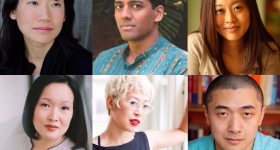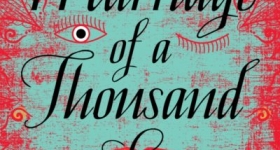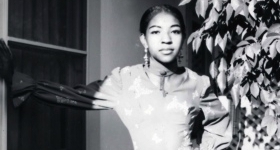Japanese poet Yone Noguchi left a trail of broken hearts in the wake of his many affairs with both men and women. In Queer Compulsions (University of Hawaii Press, 2012), author Amy Sueyoshi charts Yone’s failures in both personal and professional love. Better known as the father of Asian American artist Isamu Noguchi, Yone immigrated to the US in the 1890s.
Amy Sueyoshi is the associate dean of the College of Ethnic Studies at San Francisco State University. I had the opportunity to speak with her shortly after the book’s release.
Yone was queer at the turn of the 20th century, a time when people in America were just beginning to develop language around queer identity. How did this affect Yone’s art?
In the late 1890s, when Yone first begins his foray into the literary and arts world in America, there were more opportunities to be vague or ambiguous about his sexuality than just 10 years later when he returns to Japan. You might think it’s because Japan is super repressed, but in fact it was the opposite. Japan was in many ways more permissive than the West in terms of sexuality, particularly for men.
By the turn of the century however, Japan is more concerned about public approval from the West and therefore began to subscribe to their codes of morality. After Yone returns to Japan in 1904, his writings declare his desire for women. The shift in his writing from “possibly queer” to “definitely straight” reflected this change in sentiment toward same-sex sexuality in not just Japan but also the US , as “homosexuality” became increasingly seen as an illness by medical science and popular culture.
Yone had a lot of difficult relationships with white people of multiple genders in the late 1800s. What was it like?
We’ve all had to navigate racialized relationships with white folks at some part of our lives. Yone’s life is very poignant and relatable in how he has to deal with the intense way Japan is particularly exoticized as whites aimed to grow closer to him. It’s about this tension around facing racial hate on one hand, and then having people interested in you on the other hand, even if it’s for all the wrong reasons.
If people were spitting at you as soon as you stepped out your front door, wouldn’t it be a relief if someone approached you and said they found Japanese culture beautiful? Yone does figure out that the love he is getting from bohemian whites is cheap and superficial, a desire to be close to the exotic. His struggle then becomes about navigating this problematic love in the midst of a violently anti-Asian America in the most literal sense.
This is a preview of Issue 27: The Sex Issue, available now. Subscribe to Hyphen or pick up a copy at a newsstand near you.









Comments